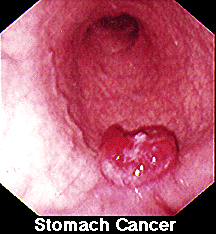Michael Fumento
Factual · Powerful · Original · Iconoclastic
Ending the Agent Orange Myth
January 01, 2004 · Michael Fumento · Scripps Howard News Service · Agent  Funny thing; nobody reported that the Ranch Handers had only half the expected rate of stomach cancers.
Funny thing; nobody reported that the Ranch Handers had only half the expected rate of stomach cancers.
Agent Orange is every bit as bad as environmentalists, anti-war activists and veterans victim groups have always claimed. Or so sayeth the media, with headlines like "Study Finds Sharply Increased Risk of Cancer among Dioxin-Exposed Vietnam Veterans" (Agence-Presse France) and "Study: Agent Orange Linked to Cancer Risk" (Associated Press Online).
These and myriad similar stories are based on a study of veterans of Operation Ranch Hand published in the February Journal of Occupational Medicine. Ranch Handers were the ones who sprayed the Agent Orange herbicide and thus are the only group of vets known to have exposure to it and its infamous trace ingredient, dioxin. They’ve been tracked for 22 years and an evaluation is published every three.
This time researchers found over twice as many cases of malignant melanoma (an often-fatal skin cancer) as among the national population, with about 50 percent more prostate cancers. Both findings were statistically significant, meaning there was only a 5 percent probability they occurred just by chance. That sounds pretty convincing, unless you bothered to actually read the study.
You’d first notice that a control group of vets in the evaluation that never sprayed herbicides in Vietnam had similarly high prostate-cancer levels. That leaves only the high melanoma rate as unique to the Ranch Handers.
Further, for all cancers combined there was no significant excesses of disease or death for Ranch Handers compared either to the general population or the control vets. Indeed, they had only about half the stomach-cancer rate compared to both groups.
If you believe Agent Orange or dioxin caused the excess prostate and skin cancers, you must also accept that it prevented stomach tumors. But nobody will say that; certainly nobody in the media mentioned the stomach cancers.
The case further crumbles if you consider studies of occupational and accidental mass exposures to dioxin that date back half a century. These include an accidental release in a Bremerhaven, Germany, chemical plant in 1953 and another in Seveso, Italy, in 1976 when a plant exploded.
There are four major groups of these exposed persons, along with many smaller ones. In all of them, dioxin exposures dwarf that of the Ranch Handers. Yet all their findings have in common is a lack of commonality.
Some indicate significantly higher levels of non-Hodgkin’s lymphoma, but of no other cancers. Some find only higher levels of soft-tissue sarcoma, while others find only higher levels of lung cancer. Some have found higher rates of stomach cancer. Meanwhile, some studies show no excesses of individual cancers during one evaluation but significant excesses a few years earlier or later.
What does it tell us about the harmfulness of dioxin or the findings of this latest Ranch Hand evaluation when alleged effects appear and disappear like the smile of the Cheshire Cat? "If you’re dealing with a real human carcinogen," says Robert Golden, president of the Maryland-based consulting firm ToxLogic, "one would expect some consistency from country to country, study to study, and from plant to plant."
But most startling is that not a single one of these numerous massively exposed groups has ever found an excess for either prostate cancer or melanoma. Indeed, no published study of humans links dioxin to either of them.
The best explanation for these new findings is that when dealing with relatively small numbers, a single extra cancer in the exposed group or a single cancer fewer in the comparison group can completely alter your results.
But just as the media ignored all this, so will Congress and the Department of Veterans Affairs. Yet the Ranch Hand study is a damning indictment of the VA’s presumptive benefits plan, under which all Vietnam vets, even those who couldn’t possibly have had Agent Orange exposure, receive benefits if their disease is on the Agent Orange list. Ten cancers are currently presumptively covered; do you think the list will now drop to two? Do you believe in elves other than the Keebler-cookie ones? Agent Orange has always been a political issue, not a scientific one. That will never change. Politics demands the presumptive benefits continue.
Perhaps some think it an indirect way to compensate Vietnam vets for their having once been spat on. In that case, why not just give a bonus to all of them rather than to pay select ones and to keep all in terror of the myth of Agent Orange?
